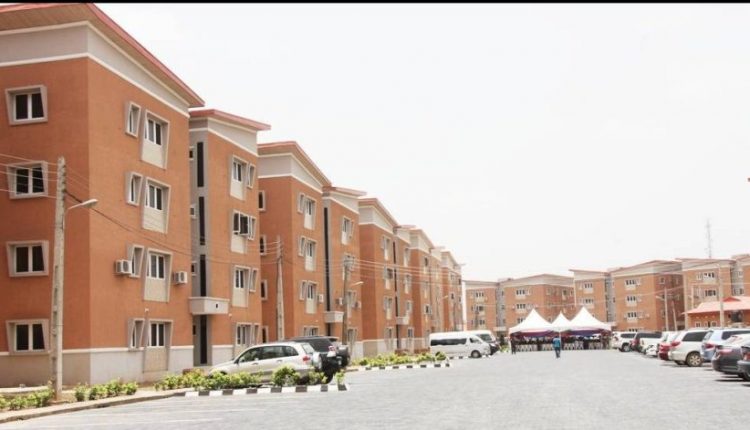Working with the understanding that housing is the bedrock of economic development and social stability, the Lagos State government, in the past 12 months, completed and delivered 1,576 new homes in its various housing schemes across the state.
The completion of these housing schemes is one of the strong footprints of the administration of Governor Babajide Sanwo-Olu who marked his first one year in office a couple of days ago.
A sprawling commercial city with an estimated 20 million population, the most outstanding environmental challenge Lagos has is its housing deficit which is both qualitative and quantitative.
The completion of these housing units means 1,576 families or households who are among an estimated three million home seekers currently in the state’s housing market will be taken out of the market in the days and months to come as they buy and take possession of these new homes.
Analysts note that, at an average of six persons per family, about 10,000 persons will be getting roofs over their heads, arguing that if this tempo is sustained in the next three years of Sanwo-Olu’s tenure, about 30,000 persons will have homes to live in.
Through with the supply side, the state is also dealing with the demand side. According to officials of the state government, plans are on top gear to ensure that buyers get access to affordable mortgage to enable them to buy the houses without much stress.
“Provision of decent housing for Lagosians is an integral part of the transformation agenda of the present administration. Housing being a critical need of humans forms the bedrock of other developmental efforts, hence the great attention given to it by the present administration, “explained Moruf Akinderu-Fatai, the state’s Commissioner for Housing.
The commissioner who spoke at a ministerial briefing on the activities of the state government in the housing sector which was held Tuesday to mark the first year in office of the state government, disclosed that the state government completed six housing schemes within this period.
These scheme, according to him, are located at Igando in Alimosho Local Government Area; Igbogbo in Igbogbo Baiyeku Local Council Development Authority, Igbokushu, Lekki Phase 1, Idale in Badagry, Iponri in Surulere Local Government and Lekki Phase 2 also in Eti Osa Local Government Area.
To deliver these schemes, the state government deployed two main strategies which the commissioner listed as Direct Budgetary allocation as well as Public Private Partnerships (PPP) initiatives.
“492 of the homes located at Lateef Kayode Jakande Gardens Housing in Igando and 360 at LagosHoms Igbogbo 2b were actualized through Direct Budgetary allocations while the rest were made possible through Joint Ventures with Private investors,” he said.
Akinderu-Fatai informed that 120 homes at Courtland Luxury Villa in Igbokushu, 124 homes at Lekki Apartments, 252 at Lagos State Affordable Public Housing Scheme in Idale Badagry, Iponri Housing Scheme with 132 units and Lekki Phase 2 Scheme in Eti Osa local Government Area which has 96 units were achieved through partnerships with Lagos State Property Development Corporation, Le Grand Property Development Company, Step Development, Echostone Housing and Messrs Lekki Ultimate Constructions respectively.
While appreciating the efforts of the partners, Akinderu-Fatai called on more serious-minded investors to join hands with the state government for speedy resolution of its housing deficit challenge.
The commissioner assured that more schemes would be completed before the first quarter of 2021 to yield an additional 2284 homes. These projects, according to him, include LagosHOMS Sangotedo clusters with 1218 homes in Eti – Osa LGA, 660 homes at LagosHOMS Odo Onosa /Ayandelu in Agbowa Local Council Development Area, Egan Igando Scheme with 270 homes, and Lagoshoms LASU in Lagos State University main Campus with 36units.
Job creation, he said, was also in consideration, explaining that the state government was working assiduously to increase manpower development through skills upgrade of 1000 artisans who would be trained in the building sector for an improved capacity as well as enhanced income generation.
Source:Businessday.ng





